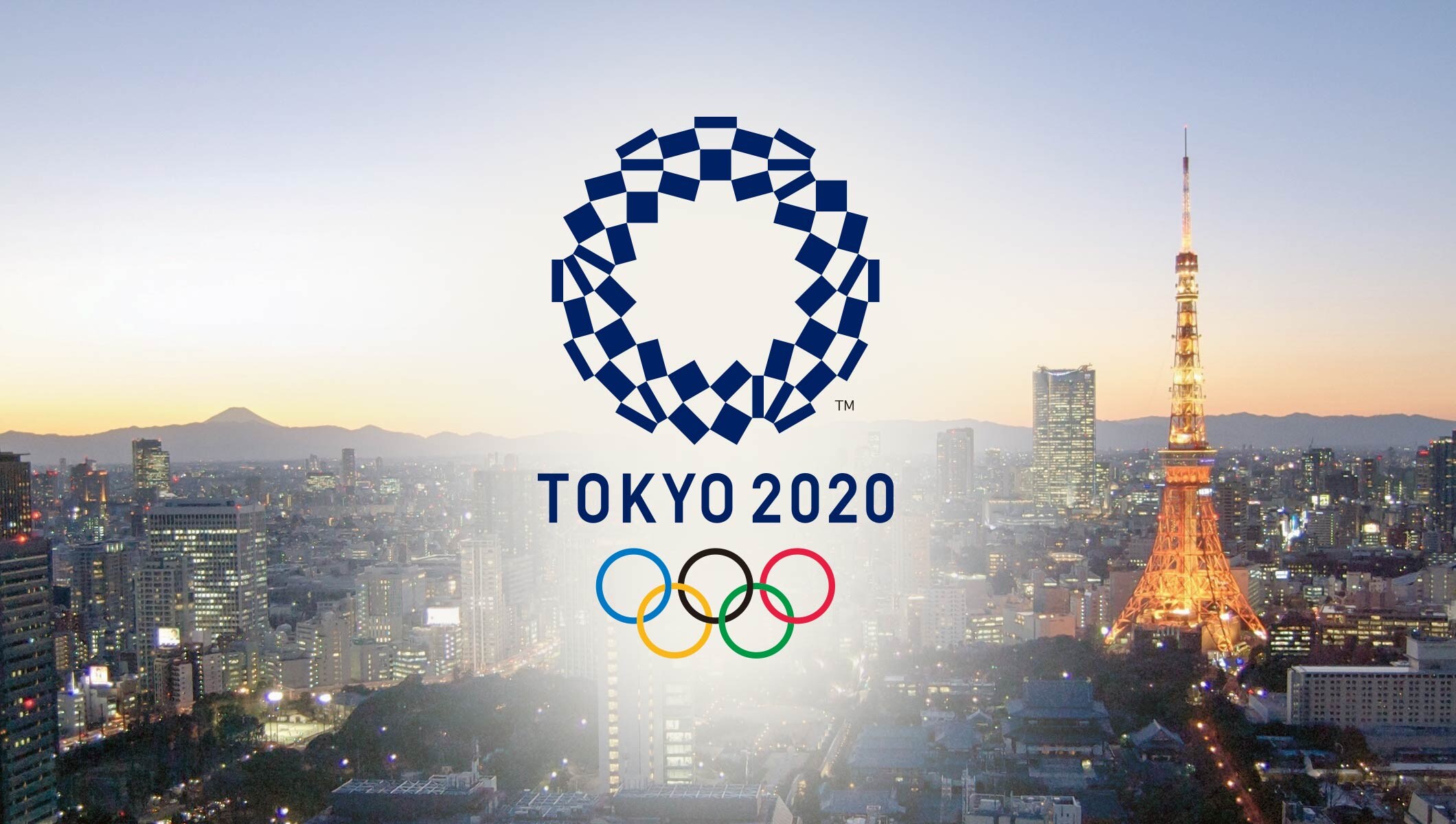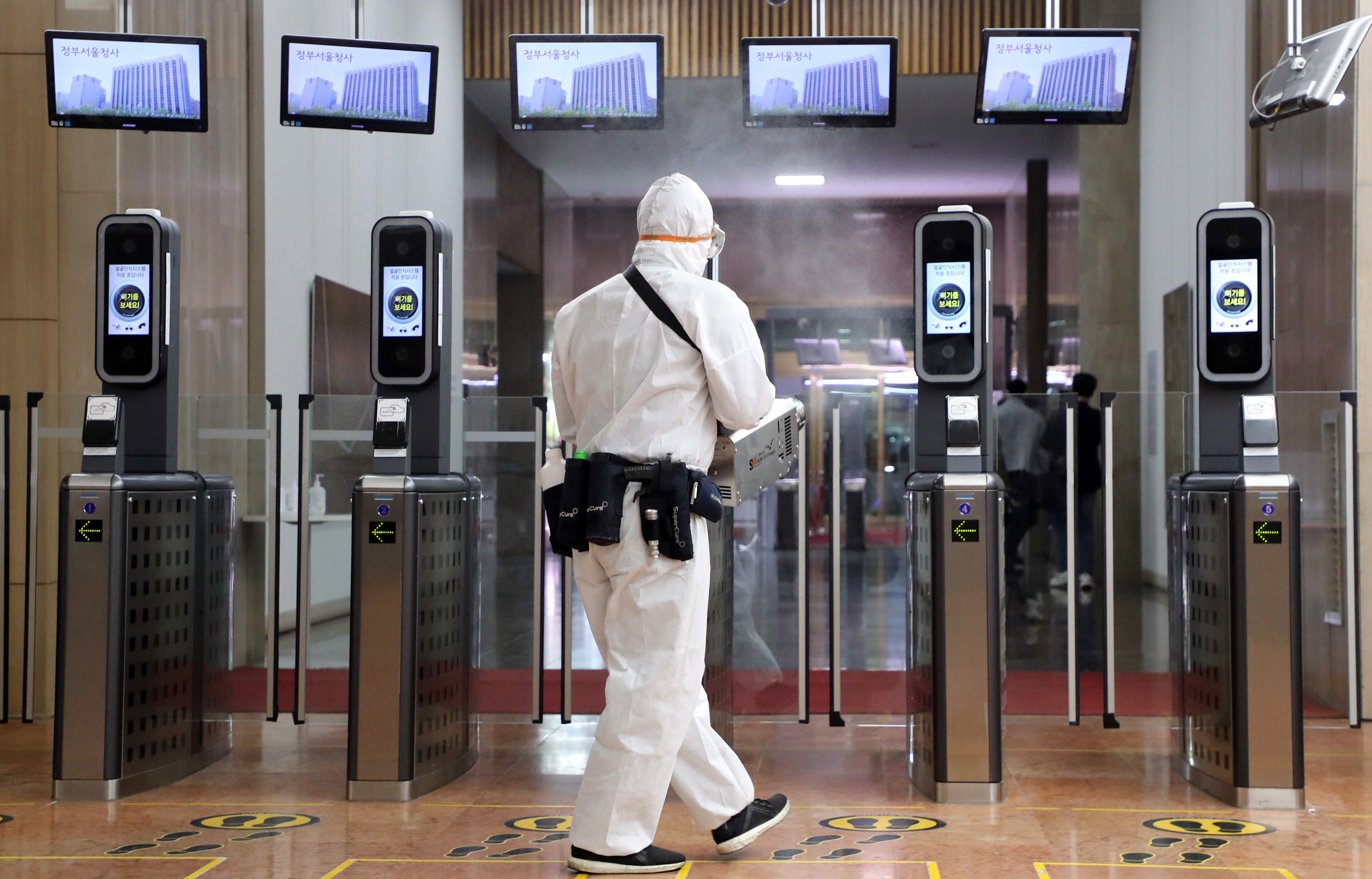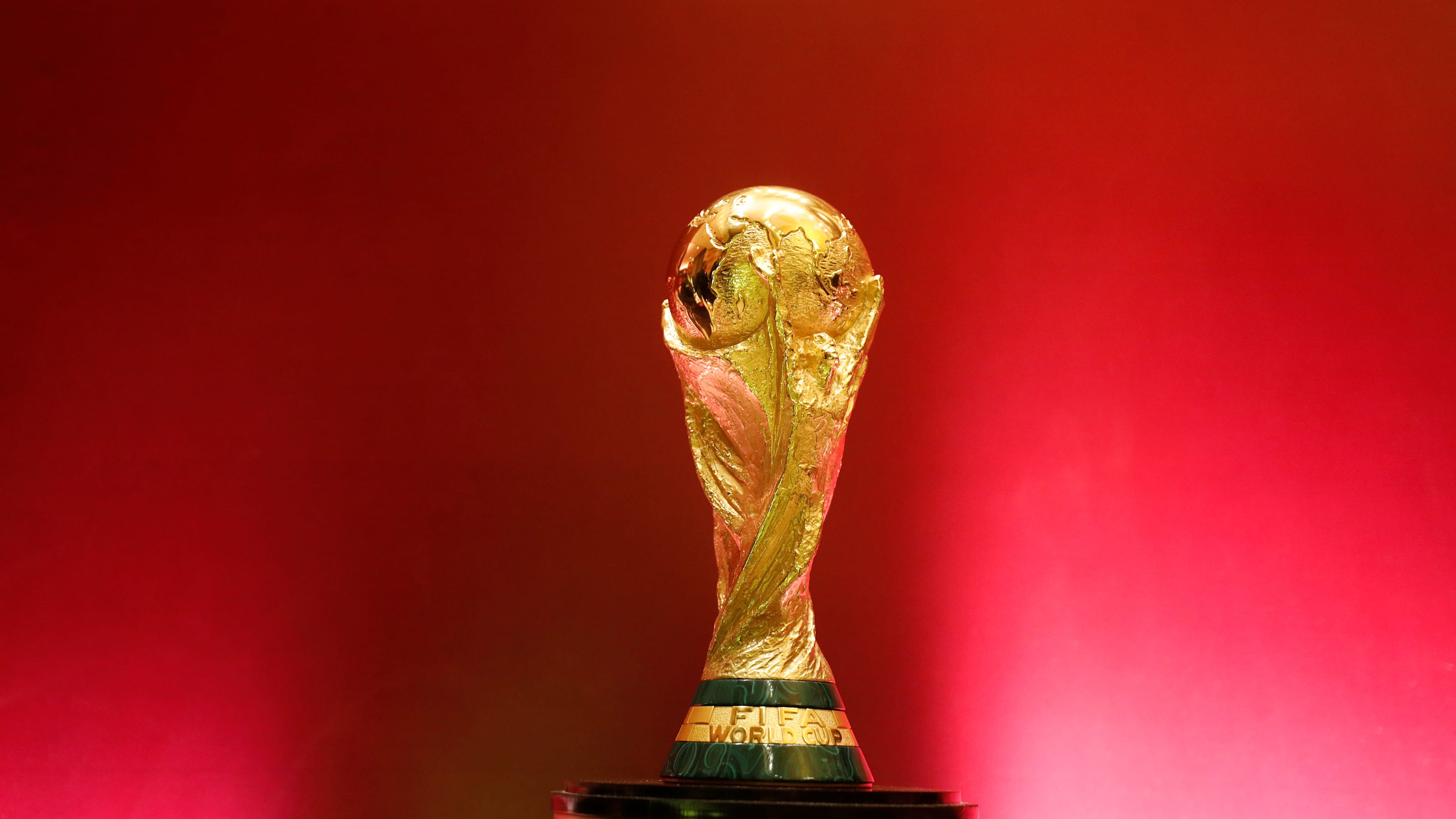The dismal perpetration for the 2022 FIFA World Cup qualification in Asia
It's just only a few weeks left before the upcoming Third Round of the 2022 FIFA World Cup qualification in Asia. But it seems like something has gone entirely wrong for many of them on their organising path...
A mess!
To see why it is so messed up, take a look at it:
Australia is the first to begin talking with. Only some weeks prior, Australian football (soccer) officials met with the Federal officials of New South Wales and Victoria, trying to persuade the regional governments to allow them to play at home soil. The FFA (Football Federation Australia) had just already got a historic agreement, that all A-League matches starting from the 2021-22 season, would not be mixed with the FIFA calendar. It was seen as a victory and a further step to improve Australia's nascent football status. FFA was confident to the point it even selected the newly-built Bankwest Stadium in Sydney as its home for the first game against China.
However, talks broke down after the federal governments of Victoria and New South Wales rejected the offer of FFA, which meant that Australia could lose its home bargaining right if they could not solve it. Despite Australian football officials even presented a plan to follow "bubble travel", in the end, it failed to even motivate the regional leaders. As a response, the FFA decided it'd take the matter to the national court on August 13th, pleasing the government to force the regional governments to u-turn the stance and to allow the Socceroos to play at home. Previously, Australia lost its right to play the remaining matches at home in the second round due to Australia's abnormal quarantine regulation and had to travel to Kuwait. Australia still survived the stage, though teams in that round were not strong like the third round. Coach Graham Arnold had refused to return to his native country when the 2020 Olympics ended. Instead, he resides in Dubai while observing the team from afar.
 |
| Australia is facing a dangerous prospect of losing its home advantage on its first matchday. |
One of the explanations was the fear of the Delta variant owing to the COVID-19 pandemic, which has spiked in Australia since May. Another reason is Australia's shocking low vaccination rate, only 20-25%, something unusual for a developed nation that shares close relations with the European Union and North America (vaccination rates in the U.S. are 65% and the EU is 55%), given the population of Australia is only 25 million. The Australian government had already blamed the EU for stagnating the delivery of vaccines and had approved two American-made jabs, Pfizer and Moderna, to rescue. Of course, Australia has somewhat avoided the disaster Southeast Asia is struggling with (its neighbour Indonesia is the worst hit in Asia), but that unsettled the Oz.
China has been facing a new spike traced from a plane flying back to Nanjing from Russia and is now struggling to contain the new wave as it hit over 17 provinces. Given China's censorship issue, we definitely know nothing about how many people really died or were infected. A recent report revealed that over 225 million Chinese were fully vaccinated, making China the leader in the vaccination programs. But, judging China's population as over 1,4 billion, this "lead" is a bane to China - the country has fallen behind even far worst-hit EU, the United States and even Russia in vaccination campaigns as only 15% of Chinese were fully inoculated. To make things worse, China-made Sinopharm and Sinovac jabs are thought to be ineffective to the Delta variant, especially given the way how Delta spreads. Furthermore, devastating flood and climate disasters struck the country in summer has hampered the process.
 |
| The match between Changchun Yatai and Hebei in the Chinese Super League on August 9th was played without spectator. |
This is transcending into a question for its football organisers. The Chinese government wants to assure that all fixtures will be played without any problems. Unfortunately, China appears sceptical of the "travel bubble", and the work could not materialise. This helped explain the reason why China lost its home advantage in the second phase, only beating an already-qualified Syria to reach this phase. The Chinese government has not shown any sign it would detract from it.
One happy thing for the Chinese is their Super League remains functional, though its matches were played behind bars. But if the government remains defiant to the course, China will have to play its first home games (against Japan and Vietnam) in another AFC member, a grave disadvantage. Let's not forget the Chinese Football Association (CFA) has not decided on a home venue, initially considered Shanghai but later rebuffed it.
Lebanon is in a constant state of turmoil as the country's misery has not come to an end. Due to economic mismanagement and widespread corruption throughout the rank of the country's own fiefdom government, Lebanon is on the verge of collapse, especially following the 2020 Beirut Port explosion. A number of countries had offered aids for Lebanon, but only if Lebanese government reformed itself. The task has probably failed as Lebanese officials and its sectarian parties are more favourable to this sectarian kind of government rather than any genuine changes. COVID-19 pandemic also delivered a devastating hit on Lebanon, as medical shortages meant its doctors have to find medicines and equipment with prices above their heads.
The mismanagement obviously, is the key reason why Lebanon will not play their first four matches at home. South Korea had agreed to switch its home-and-away fixture, meaning that the Koreans would get two home matches on their first matchdays. Frequent lack of electricity, food shortage, poor maintenance, as well as being kept hostage by Hezbollah, this is enough to tell about Lebanon today. Coming to this phase can be seen as a success, largely thanked for North Korea's withdrawal. Had North Korea stayed in this qualification, Lebanon would have had no chance to survive.
It's not clear if Lebanon can even host their home games, leave alone being far away in all early four matches. The Lebanese FA has designated Saida International Stadium as its home, but it could be undone with what's going on.
Syria's perpetration is even far more chaotic as the country has endured war since 2011. Outside war, the country also got COVID-19 a "welcome", complicating the situation. This also exclusively follows the national side: the Syrian team since 2019 alone has changed over four coaches, all left due to various reasons. The national team's performance has become increasingly intertwined with the situation at home. Syria had to suffer a humiliating 2019 Asian Cup group stage exit, then surprisingly took first place in the 2022 qualifiers.
Unfortunately, with instabilities reeling its national side, Syria's perpetration is once again in disarray. No executive plan, and losses of many key surprising elements they used to be back in the 2018 qualification, Syria can face a gruesome campaign if it wants to bid a place for the 2022 FIFA World Cup held in Qatar. No secret, the Syrians had to choose Amman, Jordan as its temporary home for this stage, hoping that Jordanian authorities would relax the quarantine rule, one of the Arab world's strictest.
Iraq is having extremely poor perpetration for the upcoming World Cup qualifiers, even though it does have enough talented players to handle. Like Syria and Lebanon, Iraq is being reeled under constant unrest, electric/water/food supplies problems, and a lack of security. Anti-Iranian sentiment has been spiking alongside with the rise of COVID-19 patient in Iraq, has led its team in a puzzling situation. Right now, Iraq has not yet designated a potential home ground, its supporters don't know where will Iraq play its five World Cup games as "hosts"? Home? Or away? Don't forget Iraq will have to travel to South Korea for the first fixture, and South Korea is not a team Iraq can joke over.
Last, but not least, for Iraq, they have parted ways with their Slovenian coach, Srečko Katanec, due to a salary dispute. Luckily, they got a new coach, Dick Advocaat, who led the Netherlands in the 1994 World Cup and Euro 2004. But will it be a way to solve all the messes? No one knows. Iraq has proven that it can beat Iran in the same qualification prior, but it definitely needs to ramp up its organisation before there is a backlash.
Saudi Arabia seems to be a bit better, but it is still not clear how will Saudi Arabia go with the plan.
Unlike Lebanon, Iraq and Syria, which are being under crisis, Saudi Arabia has been largely stable and with a big economy, it is capable of functioning in various big competitions, as it did with the first three editions of the FIFA Confederations Cup. But as COVID-19 is striking hard on the global supply chain, so does it hit Saudi Arabia. The country has been under strict surveillance and only a few supporters are allowed to watch football games, be it clubs or the national side. In some aspects, Saudi Arabia, like other major big Asian football nations like Australia, Japan, Iran, South Korea, the UAE and China, is able to function in the Professional League normally, something that should be welcomed.
Still, the Saudis fear that the pandemic could disrupt its hope. It understands very well those issues, so Riyadh is moving fast with the hope to create a safe zone to curb the pandemic. At the same time, with the Saudi League on the re-run, the infection could emerge due to the infectious Delta variant. This can be understood with the below-standard vaccination rate, as only 30%, rather than 50%, as hoped, to get enough jabs.
 |
| A Hajj in Saudi Arabia during the pandemic. |
If there are jumping of cases in the region, it can be a huge blow for Riyadh, forcing them to welcome their opponents... without fan supports. Saudi Arabia must have seen how Bahrain missed out on the final round due to lacking home support. Gulf Arab teams always suffer problems when playing without fans to motivate them.
Saudi Arabia's neighbour, the United Arab Emirates, with a smaller population, appears to be faster in the vaccination program, thus higher chance to return to normal. We can say the UAE is one of the very few lights in the darkening picture of the upcoming 2022 FIFA World Cup qualification.
The United Arab Emirates' success was driven by the rapid use of different types of vaccines. Mostly the country used China's Sinopharm, but it also used Sputnik, Moderna, Astra-Zeneca and Pfizer. The combination of uses allows the UAE to be fast on its road to normalcy. And so on, its football team is better prepared and organised than the remaining others, whose vaccination rollouts were hampered by logistical situations.
 |
| The UAE football team is boosted morale with the successful vaccination campaign. |
With these advantages on hand, the UAE is confident it'll claim a second berth to the World Cup, after its lone appearance in 1990.
On the other side, Vietnam is facing a real crisis regarding how to get ready for the qualification. As the country is facing the worst coronavirus pandemic, the domestic league was suspended in May. An attempt to let the league re-run in late October-early November resulted in a vote, but ended in failure as not enough clubs supporting it. This has led to the accusation that the VPF (Vietnam Professional Football Company) prioritises its self-interests above the clubs, corruption, even demanding the VPF President to quit the position and allow a second vote to decide.
With the widespread infighting inside the federation for failing to apply "bubble travel" for the national league, many Vietnamese players, key important members that served the team, have been practising at home instead, missing many of the important games to play in the domestic league. This is very detrimental as Vietnam has to prepare for the 2022 FIFA World Cup with its team playing no match at the domestic competition as opposed to the team's rivals. Yet the shameless explanation of VFF (Vietnam Football Federation) and VPF, to be again refusing to apply "bubble travel", further derailed the trust between sponsors and clubs to the federation, as it became evidence of the corrupt nature and its inability to adapt with the circumstances of VFF remains unchanged. Given that Vietnam's vaccination campaign is among the worst in the world (only more than 1-6% received doses, Vietnam's population is over 95 million), it's uncertain how can Vietnam get ready to kick its World Cup dream. Most recently, the Vietnamese government and VFF have concluded that the qualifying match between Vietnam and Australia in Hanoi, will not welcome fans.
When going to Iran, the country is also under an unprecedented crisis.
Misuse of vaccines and its disregard of human lives meant Iran has only more than 5% being fully vaccinated, as money for public fundings has been spent to spread the regime's Islamic ideology, mostly for terror groups in Syria, Lebanon and Iraq. Unsurprisingly, anti-Iranian unrest has been bursting in Lebanon and Iraq, with the same accusation of Iranian interference.
This affects Iran's state of football as many of the Pro League's games have been played behind closed doors. Though Iran's best play abroad, the drain of money for Shi'a terrorist armies abroad meant that Iranian players don't get enough salary as they wanted. The same salary crisis that caused former Iran's manager, Carlos Queiroz, to depart. Now, with a new coach, Croatian national Dragan Skočić, Iran's route remains to be seen.
It'd not be a surprise to be fair. Poor organisation and lack of a singular idea about how to combat the COVID-19 pandemic, needless to say about the regime's funds for Iran-backed groups in the Middle East, led Iran to play the third round with question lies on her head: how far will Iran go. Still, kudos to Iranian players that they still represent the country's hope in this darkening moment.
For Japan, the hood is complex.
Japan has already hosted the 2020 Summer Olympics without fans, the first time ever that an Olympics was held without a single supporter. With little time to spare, Japan has to immediately organise the FIFA World Cup qualifying round, this time will be facing Oman. But because of the same competition, there has been a spike in the number of new COVID-19 cases in the country.
 |
| Japan's effort to host the 2020 Summer Olympics had been forcibly paid with rising new COVID-19 cases. |
As for the result, Japan's perpetration for the upcoming 2022 World Cup run remains to be seen. Yet Japan's vaccination program is below expectation, with only 38% of the population got inoculated. Hence, as much as Japan has somewhat avoided the catastrophe of Southeast Asia, there is still no confirmation that Japan can be safe. Playing under the extreme COVID-19 crisis is presenting a new challenge as Japan is looking for a seven consecutive World Cup.
On the bright side, Japan can summon their best players in Europe. Adding with the well-maintained facilities, Japan probably offers another few lights in how to organise a football game during the pandemic. Moreover, Japan has adopted "bubble travel", something fans can celebrate a bit. Of course, quarantine levels in Japan will hardly be restricted sooner or later, and we'll need to see if Japan, which has close ties with Europe and North America, will gather enough doses or not.
Anyway, for fans, it will be a shock if Japan misses the World Cup, given how the country has used to be with the global atmosphere since 1998.
Japan's neighbour South Korea doesn't seem to be better too.
While South Korea possesses some of the best facilities like Japan, it suffers from an extremely low rate of vaccination comparing to other developed countries, which is, painfully, in pair with Russia and Australia. Only 20% of the country's population were vaccinated. Hence, the country has to apply bubble travel. This is a shock for many, given South Korea, itself is the largest producer of vaccines in Asia after India and China, yet has been unable to provide full doses for its home people.
 |
| South Korea's fighting to keep COVID-19 at bay. |
Of course, like Australia and Japan, South Korea doesn't suffer the worst like what Southeast Asia is facing. But its slow progress in vaccination made it questionable.
Considering that South Korea will play two first matches in the qualification at home, it is a blessing new. This can reinvigorate Son Heung-min and his teammates to focus on its 11th appearance on the big stage, given the country's status. Best notice for us that South Korea has never missed a World Cup since 1986. Outside that, the fact that this country has largely followed the professional model of football for quite a long time meant that South Korea is able to revert to its football life when necessary, boosting optimism on its World Cup quest.
Oman? Well, this is hard that's for sure.
Although it is not a hermit kingdom, Omani government has been criticised for its poor handling of COVID-19 vaccination campaign, when the country has a dismal result of only 13% population got vaccinated, a shock considering Oman's very small population for a large territory (Oman has 7 million people and over 250 kilometre square). This shocking low vaccination program made Oman in question.
Unsurprisingly, Omani officials have struggled to implement a clear and concrete plan, and matches in Sultan Qaboos Sports Complex will be played without fans. Given Oman's notorious supporters renowned for its distinctive cheering and passion for its home team as well as the fellow Gulf teams, losing home fans can be a grave challenge for the country if it wants to be a major player in the future World Cup.
To make it worse, the Omani team is assembling its squad in Serbia for training. Although Serbia has a relatively successful vaccination campaign in Europe, it can't change the fact that Serbian authorities remain fearful of a potential virus outbreak. Omani team will not return home until a few days before the World Cup game, and if their best players were infected, it will represent a huge problem in logistics.
Can the mess be solved?
As usual, the best option for this is fully inoculated people, but there has been no sign that all of them will finish on time.
And then, governments' relaxation. But some governments don't seem to be lenient. Think China and Australia - their national teams are in constant fighting with the officials over hosting or not.
In the end, domestic football league must be well-functioned. This is not with the case of countries like Lebanon, Syria, Iraq and Vietnam - due to various reasons.
So we have it - different issues, different ways of dealing. This tragicomedy of 2022 qualifiers have yet to see an end... Only God know...

Comments
Post a Comment